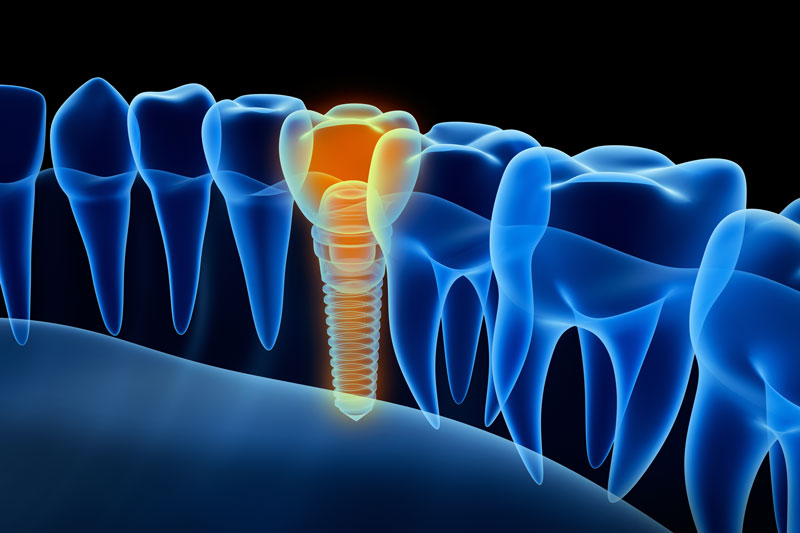Missing Teeth? Discover the Lasting Benefits of Dental Implants
Losing a tooth as an adult can feel discouraging. It’s not just about the empty space in your smile—it can also affect the way you chew, speak, and even how confident you feel. For some, missing teeth bring everyday frustrations, from avoiding certain foods to being self-conscious in photos.
Many people today are choosing Phoenix dental implants instead of traditional solutions like dentures and bridges. Dental implants look and feel much more like real teeth. If you've been thinking about getting implants but aren't sure if they're worth the money, this article will explain their long-term benefits and what to expect.
What Are Dental Implants, Exactly?
Dental implants are little posts that look like screws and are constructed of medical-grade titanium. They are put into the jawbone with surgery to act like real roots. After the implant fuses with the bone, which is termed osseointegration, a crown, bridge, or denture can be securely placed on top.
Implants are fixed in the bone, so they don't shift or slip like dentures do. That solidity makes them feel nearly like real teeth.
Why It's Important to Replace Missing Teeth
It's easy to ignore a lost tooth, especially if you can't see it. But not taking care of the gap might cause more than just difficulties with how it looks:
- Bone Shrinkage: The jaw starts to weaken and shrink when tooth roots don't stimulate it.
- Shifting Teeth: Teeth next to each other often move into the empty area, which causes them to be out of alignment.
- Bite and Chewing Problems: Not having teeth makes it harder to eat and can put stress on the teeth that are still there.
- Changes in Speech: Gaps may make it hard to pronounce words or cause other little speech problems.
- Aging of the Face: As bones lose density over time, the face may look sunken or older.
Dental implants fix both the function and the structure, which stops these problems.
The Long-Term Advantages of Dental Implants
- Looks Natural: Each implant crown is made to match your teeth in shape and color, so it fits seamlessly into your smile.
- Long-Lasting Durability: Bridges and dentures usually need to be replaced every ten years or so, while implants are made to survive for decades with the right care.
- A Strong, Confident Bite: Implants restore almost full chewing power, letting you enjoy foods like apples, almonds, or corn on the cob.
- Protecting the Jawbone: Implants prevent bone shrinkage and facial sagging that happen when teeth are missing.
- More Self-Assurance: You can smile, talk, and laugh naturally without worrying about movement or clicking.
Who Would Be a Good Fit?
Most healthy adults who are missing one or more teeth can have implants. The best candidates usually have:
- Gums that are healthy and free of untreated gum disease.
- Enough bone density in the jaw (or are able to undergo bone grafting).
- Good overall health for appropriate healing.
- A willingness to maintain good oral hygiene.
For patients with conditions like uncontrolled diabetes or heavy smoking, a dentist may suggest extra procedures to improve treatment success.
What Happens Throughout the Dental Implant Process
The treatment journey usually takes a few months, but it’s predictable and worth the wait. Typical steps include:
- Consultation and Exam: Digital scans and X-rays are taken to create a personalized plan.
- Placement Surgery: The implant post is gently inserted into the jawbone.
- Healing Time: The implant bonds with the bone naturally over 3–6 months.
- Abutment and Crown: A connector is attached, followed by a custom crown.
- Ongoing Care: Regular dental checkups ensure long-term health and stability.
Though it may sound complex, most patients report their recovery is easier than expected.
Questions That Are Often Asked
- Does the process hurt?
After installation, most patients only feel minimal pain, similar to a simple extraction. - How long will my implants stay in?
With proper care—brushing, flossing, and regular dentist visits—implants can last a lifetime. - Are they more expensive than false teeth?
Yes, the upfront cost is higher, but implants are often more cost-effective long-term because they rarely need replacement. - Can implants replace more than one tooth?
Definitely. Implants can support single crowns, bridges, or even full-arch dentures.
Taking Care of Dental Implants
One of the best things about implants is how simple they are to maintain. Unlike dentures, which require special soaking and cleaning, implants only need routine oral care:
- Brush twice a day with fluoride toothpaste.
- Floss carefully around the crown of the implant.
- Avoid smoking, as it weakens gums and bone.
- Schedule regular dental checkups and cleanings.
Not Just a Better Smile
Dental implants do more than just replace missing teeth. They protect oral health, restore proper bite function, and boost self-confidence. Many patients say implants feel so natural they forget they even have them.
Are You Ready to Move On?
You don’t have to live with missing teeth forever. Dental implants are a strong, lasting solution that can transform the way you eat, talk, and smile.
📞 Call today to set up your implant consultation. This is the first step toward a healthier, more confident smile.





